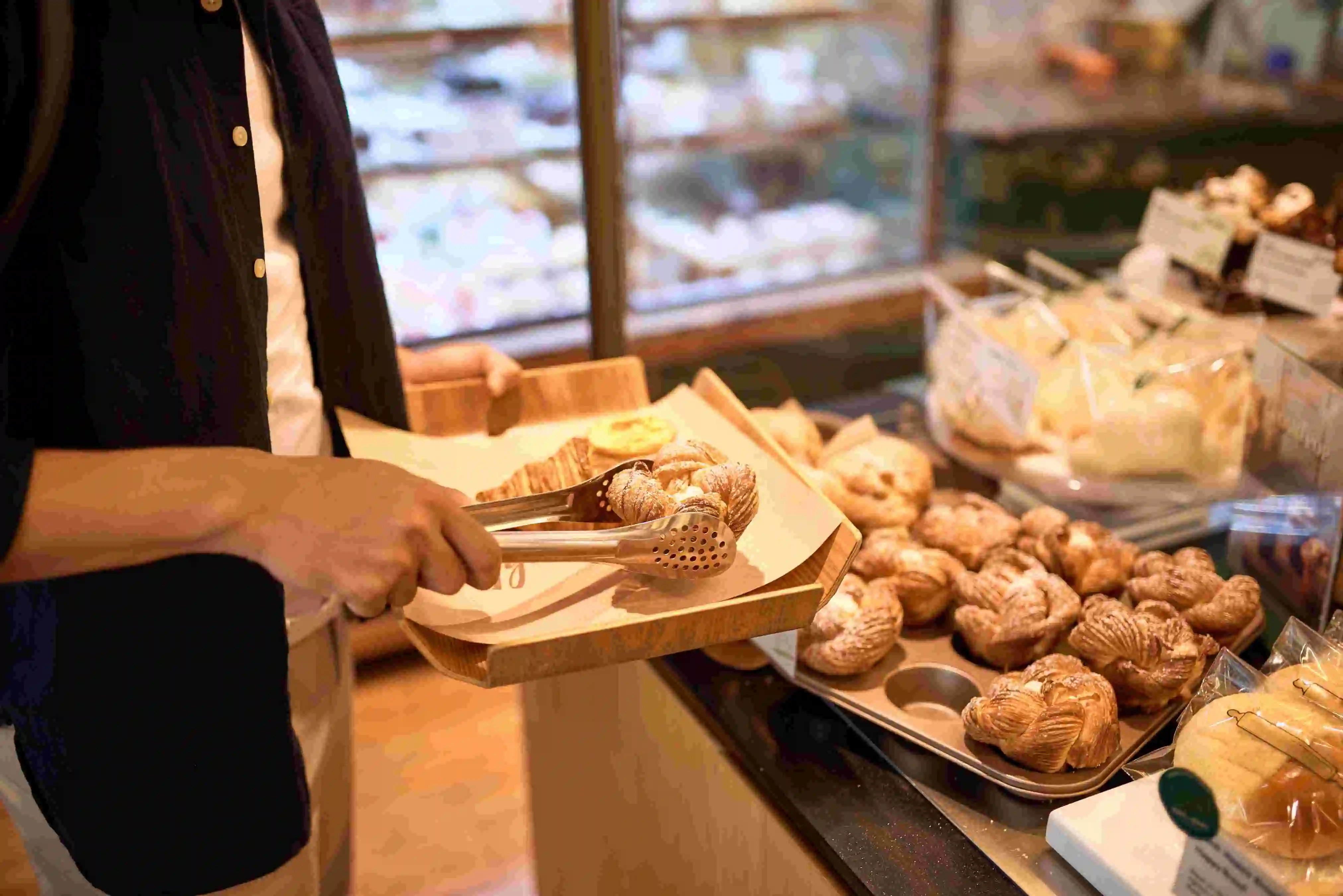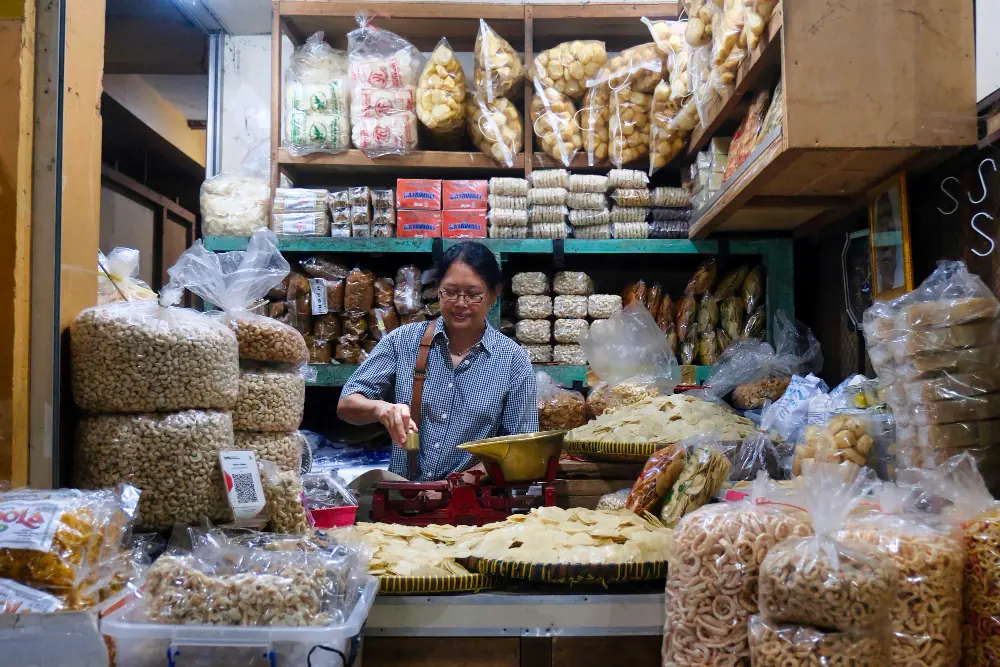The bakery business has become one of the fastest-growing industries in various parts of the world. With the increasing public interest in high-quality and unique food products, bakeries are not just places to buy bread or cakes; they have become destinations for food lovers seeking a different culinary experience.
If you're interested in starting a bakery business, you should first consider the essential aspects involved. From designing the business to calculating the necessary capital, we’ll discuss the key points before starting a bakery business to ensure that your business can thrive and succeed.
1. Advantages of Opening a Bakery Shop
Starting a bakery shop offers several advantages that make it appealing to both new and experienced entrepreneurs. Here are some of the benefits:
1.1 High revenue potential
Bakery products, such as bread, cakes, and pastries, are enjoyed by all segments of society, from children to adults. This makes the bakery market broad and not limited to specific groups, which can increase sales and boost revenue.
1.2 Steady demand
Bread, cakes, and pastries are commonly consumed as staple foods or snacks. Many people eat bread for breakfast or as a light meal, and cakes are often used for birthday celebrations. As a result, the demand for bakery products remains consistent over time, creating stable income for beginner bakery businesses.
1.3 Collaboration opportunities
Another advantage of running a bakery shop is the wide and flexible collaboration opportunities. Collaborations can increase brand awareness, expand the market, and create innovative products and services. You can collaborate with cafes, influencers, event organizers, supermarkets, and more.
Also Read: Branding Is: Definition, Types, and Tips for Doing It
2. Bakery Business Challenges
Although a bakery business has many advantages, there are also some challenges that business owners need to face. Here's a closer look:
2.1 High initial capital
The prices of main ingredients like flour, sugar, butter, and eggs often fluctuate, especially due to changes in global markets or weather conditions affecting supply. In addition, the equipment needed to produce high-quality bakery products also requires a considerable investment. This can affect production costs, so bakery owners must be smart in managing prices and maintaining product quality to stay competitive.
2.2 Quality of ingredients
Bakery customers are typically very particular about taste and product quality. For instance, using high-quality butter will greatly influence the flavor of bakery products. If product quality declines or is inconsistent, customers may quickly switch to another store. Bakeries must maintain high production standards, ensuring each product tastes and looks the same every time.
2.3 Shifting trends
Food trends change rapidly, so bakeries must continuously innovate to keep customers interested. Keeping up with trends like healthy food, vegan, gluten-free options, or new flavors requires time, research, and additional costs. Bakeries that fail to adapt to new trends may lose customers.
2.4 High competition
The bakery industry is highly competitive, especially in big cities. The abundance of home bakeries and large-scale bakeries makes the competition tougher. Bakeries must offer unique, high-quality products and continuously innovate to compete and retain customers.
Also Read: How to Increase Brand Awareness for Online Business Sales
3. Types of Cakes Sold at a Bakery
At a bakery, various types of cakes can be sold, from classic to modern options. Here are some common cakes found at bakeries:
3.1 Croissant
Croissants are popular among those seeking light snacks or a convenient breakfast. Known for their flaky texture, crispy on the outside and soft on the inside, croissants are created through a laminating process that involves rolling the dough with layers of butter. As a bakery entrepreneur, you can offer a variety of croissant flavors, such as chocolate-filled, pistachio, almond paste, and more.
3.2 Tart
Tarts are a delicious and attractive option to sell at a bakery. With good quality and innovative variations, tarts can become one of the best-selling products. These cakes are in high demand during certain seasons, such as birthdays and related events. Entrepreneurs can experiment with new flavors and ingredients, such as organic tarts or seasonally themed, customizable tarts.
3.3 Sponge Cake
Sponge cake is a popular choice, whether for daily consumption or special occasions. Examples include pandan sponge cake, banana sponge cake, caramel sponge cake, and fermented cassava sponge cake. Additionally, this type of cake is relatively easy to produce, making it a good option for bakeries, especially for beginners. As a bakery entrepreneur, you can innovate by making healthy sponge cakes from organic ingredients or themed cakes.
3.4 Donuts
Donuts are a highly popular type of cake, favored by many. Donuts are known for their distinct shape, soft texture, and ability to be filled or topped with various ingredients. These cakes often become customer favorites at bakeries due to their variety. For example, donuts with different flavors and toppings depending on customer preferences. Nowadays, there are more creative variations, such as bomboloni and churros.
3.5 Brownies
Brownies are typically soft and fudgy, with a slightly crisp top and a soft inside, making them loved by many. These cakes often come in diverse flavors dominated by chocolate, like cheese brownies, almond brownies, taro brownies, and more. Brownies can be served flexibly, as a companion to coffee or tea, or for special occasions.
3.6 White Bread
This bakery product is very popular and widely sought after. Known for its soft texture and neutral taste, white bread is a versatile choice for various uses. The advantage of selling white bread is its consistently high demand, as it is a daily staple that can be prepared in many different ways.
3.7 Cupcake
Cupcakes are a highly popular type of cake, loved by many. Cupcakes are known for their small size, varied decorations, and different flavors. As a bakery owner, you can innovate with these cakes. For example, offering themed cupcakes for special events like Halloween, Christmas, cartoon characters, or birthdays, customizable with customers' favorite characters.
3.8 Cheesecake
For cheese lovers, cheesecake is a consistently appealing option. Known for its creamy taste and soft texture, cheesecake often serves as a favorite dessert choice. Don’t hesitate to include cheesecake among your offerings, providing various interesting flavors and decorations.
3.9 Macarons
Macarons are small, highly popular cakes originating from Italy, known for their beauty and unique taste. Made from almond flour, sugar, and egg whites, they are usually filled with various types of cream, ganache, or jam.
3.10 Layer Cake
Layer cakes attract attention with their vibrant colors and clear layers, which can captivate customers. These cakes are often served at special occasions like weddings, birthdays, or family events with appealing designs.
3.11 Sweet Cakes
Sweet cakes encompass a wide range of types with sweet flavors, typically made to be enjoyed as snacks or desserts. They are often filled with chocolate, bananas, and cheese. Sweet cakes are a stable product to sell as they are always in demand, both by children and adults.
4. Tips for Starting a Bakery Business
Starting a bakery business can be an exciting and profitable venture. Here are some tips to help you successfully start your bakery business.
4.1 Define Your Concept
There are various types of bakery businesses, so the first step is to decide on a concept. This can be tailored to your skills or based on market demand. For example, you could focus on pastries, wet cakes, dry cakes, or even a combination.
4.2 Create a Business Plan
Write a clear description of your bakery business, including its vision, mission, and the types of products you will sell. This will serve as a guide for all future decisions. A business plan should also include financial planning and marketing strategies so you know the direction of your business.
4.3 Choose a Sales Location
Selecting a location that is easily accessible to customers is essential. Choose a place close to busy areas, such as schools, offices, or shopping centers. Also, consider the size of the space. Ensure that the location is spacious enough to store equipment, raw materials, and storage areas. A space that is too small can hinder operations.
4.4 Prepare Equipment and Supplies
As a bakery owner, it’s crucial to prepare the necessary tools. You need to identify the equipment required, as each type of baked good may have different preparation methods. Essential items include an oven, mixer, whisk, and baking trays.
4.5 Use Quality Ingredients
Starting a bakery business with high-quality ingredients is essential to produce delicious and top-notch products. Using high-quality flour, milk, and butter will affect the outcome of your baked goods. Find and select suppliers known for providing quality ingredients. Read reviews and ask for recommendations from fellow business owners.
4.6 Offer Varied and Unique Menus
Create one or more signature products for your business. This could be a unique cake, bread, or pastry made with a special recipe that only you offer. This uniqueness can set your bakery apart, especially if customers love the product.
4.7 Hire Employees
As your bakery business grows, consider hiring employees. Determine the positions that need to be filled, such as bakers, kitchen assistants, cashiers, or marketing staff. Create clear job descriptions for each position, including responsibilities, required skills, and expected experience.
4.8 Follow Current Trends
Keeping up with trends is essential for running a successful bakery. Follow social media accounts that focus on the bakery industry, such as Instagram, Pinterest, or TikTok, to see what’s popular and emerging trends. For instance, pastries like “cromboloni” or croissant waffles went viral a few years ago due to their social media presence.
4.9 Promote Online
In addition to creating quality products, you need to promote your bakery to build a good reputation. Use social media platforms that align with your target market, such as Instagram, Facebook, and TikTok. Next, create engaging content, such as recipe inspiration and helpful tips.
5. Estimated Capital for a Simple Bakery
The estimated capital for a bakery business and its potential profits depend on the scale of the business, location, and target market. Below is an estimated budget for a small to medium-scale bakery and its profit projections:
5.1 Estimated Initial Capital
Equipment:
Oven: IDR 5 million – IDR 10 million (depending on capacity and type)
Dough mixer: IDR 2 million – IDR 5 million
Digital scales: IDR 300 thousand – IDR 500 thousand
Baking trays and molds: IDR 500 thousand – IDR 1 million
Workbench & storage shelves: IDR 1 million – IDR 3 million
Refrigerator or freezer: IDR 2 million – IDR 4 million
Packaging tools: IDR 300 thousand – IDR 500 thousand
Total estimated equipment: IDR 11 million – IDR 24 million
Ingredients (per month):
Flour, sugar, eggs, butter, milk, yeast, etc.: IDR 5 million – IDR 10 million (depending on production scale)
Packaging and promotional materials: IDR 1 million – IDR 2 million
Total ingredients: IDR 6 million – IDR 12 million
Operating Costs (per month):
Rent: IDR 3 million – IDR 7 million (depending on location)
Employee salaries (if any): IDR 3 million – IDR 6 million (for 2-3 employees)
Electricity and water: IDR 500 thousand – IDR 1 million
Transportation and promotion: IDR 1 million – IDR 2 million
Total operating costs: IDR 7.5 million – IDR 16 million
Total Initial Capital (equipment + ingredients + first-month operations)
Small scale: IDR 24.5 million – IDR 30 million
Medium scale: IDR 35 million – IDR 52 million
Profit Calculation Assume that in one month, bakery sales reach IDR 15 million – IDR 30 million, with a gross profit margin of 40-60% (due to ingredient and operational costs). The estimated net profit is as follows:
Sales of IDR 15 million (small scale):
Gross profit of 50%: IDR 7.5 million
Net profit after operating costs: around IDR 3 million – IDR 4 million
Sales of IDR 30 million (medium scale):
Gross profit of 50%: IDR 15 million
Net profit after operating costs: around IDR 6 million – IDR 9 million
By understanding market needs, staying up to date with trends, and offering quality products, you can build a strong reputation as a bakery business owner. Be sure to dedicate yourself fully to this venture, as that’s how you can achieve success.
—
To support you in acquiring complete baking equipment and high-quality ingredients, BFI Finance, a trusted finance company in Indonesia, offers business capital financing with collateral. The types of collateral that can be used include vehicle BPKB (Car and Motorcycle) and Home Certificates.
Enjoy high loan disbursement, up to 95% of the asset value you pledge, along with competitive interest rates. BFI Finance is licensed and supervised by the Financial Services Authority (OJK), so feel confident in choosing us as your financing partner. #SelaluAdaJalan with BFI Finance.







